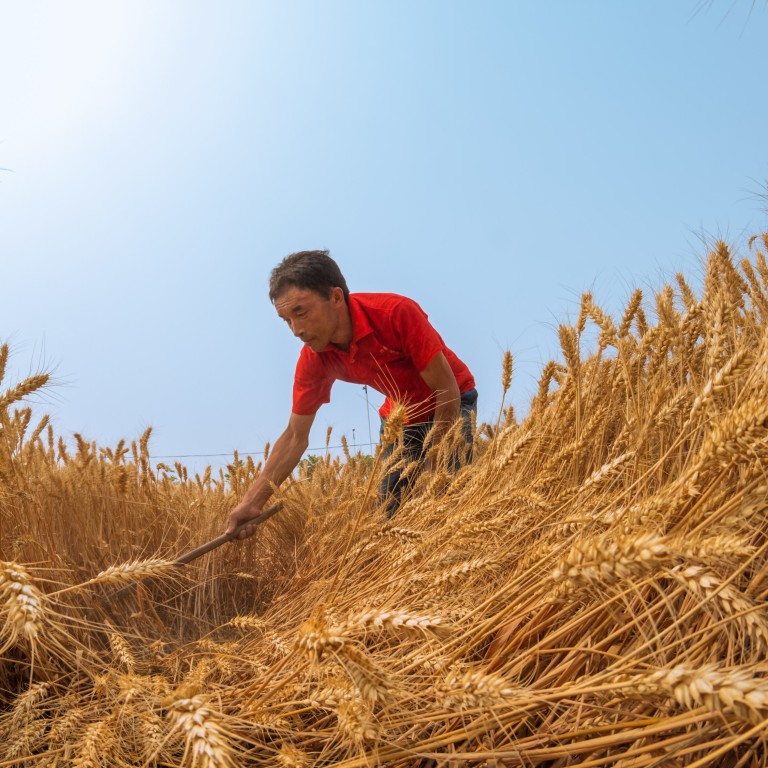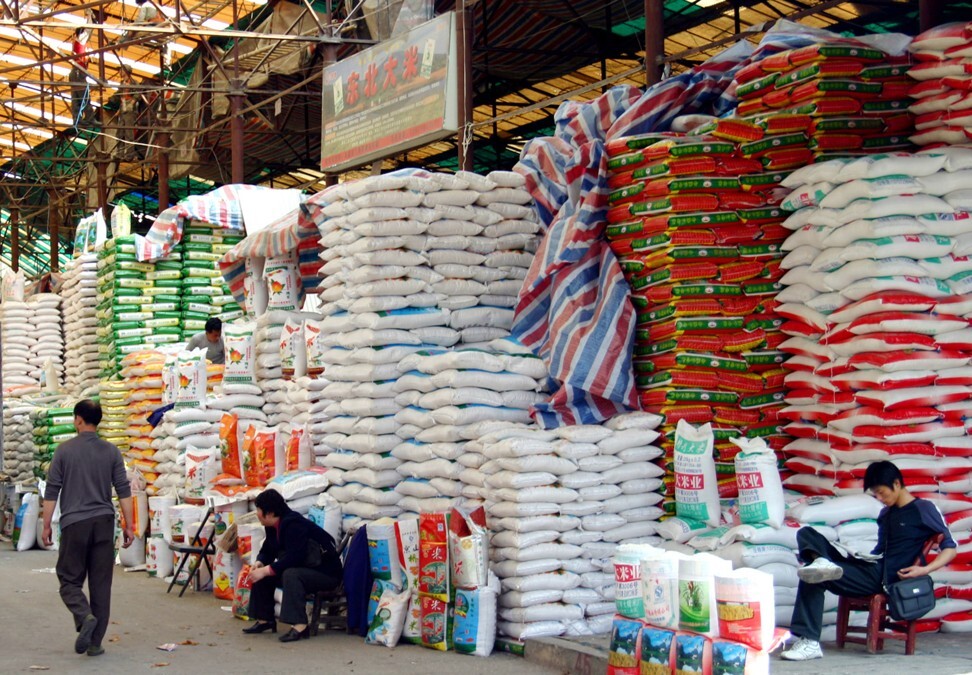
China’s food security concerns mount, but supply risks are growing as farmers hoard grains
- Industry insiders say the coronavirus pandemic has resulted in farmers holding about 20 to 30 per cent more grain in reserve in their home warehouses
- National Food and Strategic Reserves Administration does not comment on reason for the decline in grain purchases in Henan, but says China’s purchasing of the summer harvest is on track
Prices of wheat and corn are rising sharply in the world’s most populous country, raising fresh questions about whether China’s food supply is truly safe amid a rising dependence on grain imports, shrinking arable land and disruptions caused by natural disasters.
The latest evidence came via a decline in the state purchase of summer harvests of wheat – an important grain for Chinese households. According to data released by China’s National Food and Strategic Reserves Administration (NFSRA), China’s state grain reserve system purchased 41 million tonnes (45 million short tons) of fresh wheat from June 1 to July 31, a drop of 17.2 per cent from a year ago.
Industry insiders said that many farmers have decided to hoard grains – instead of selling them to the government – as a result of the coronavirus pandemic.
Ma Xiaojuan, deputy general manager at the Henan Oil and Grain Foreign Trade General Company, said farmers are estimated to have put about 20 to 30 per cent more in reserve in their home warehouses, while traders, who play the role of agents between farmers and state-run warehouses, are also hoarding grains in anticipation of further price increases.

In Henan, one of China’s major wheat-growing provinces, an online trading system for grain purchases by state-run warehouses was closed from Thursday, according to a notice issued by the local subsidiary of China Grain Reserves Cooperative that was seen by the South China Morning Post.
The cooperative did not explain the reason for closing the system. But it is obvious that few traders are willing to sell grains to the state purchaser at the relatively low state-sanctioned price of 1.12 yuan (US$0.16) per 500g, or 2,240 yuan (US$322) per tonne.
The NFSRA declined to comment on the reason for the decline in purchases in Henan, but it said China’s purchasing of the summer harvest is on track.
In Shandong, another wheat-producing province, the price of wheat in July increased to 2,380 yuan per tonne, or about 5 per cent higher than in July last year.
However, the supply pressure in China’s grain market is obvious.
The price of corn, which is mainly used for animal feed, has hit five-year high in China, forcing factories and farmers to switch to wheat as an alternative.
The Chinese government, in a clear bid to ease price increases in wheat, has auctioned off 6.17 million tonnes of stocked wheat this year, as of July 27, or about four times the auctioned volume in the same period last year, according to China’s official auction figures.
01:31
Food tracing system a hit with customers at supermarkets in northwestern China
China has been sourcing grain from other parts of the world, as well. It imported 910,000 tonnes of wheat in June alone, an increase of 197 per cent from a year ago, customs data showed.
China’s leaders and officials have been repeatedly assuring the public that the food-supply situation is under control, though this in turn has fanned suspicions of supply problems. President Xi Jinping urged the country’s officials to ensure grain-supply security during a visit last month to Jilin province, an important corn- and soybean-producing province.
Han Changfu, China’s agriculture minister, wrote in an opinion piece published on Friday in People’s Daily, the Communist Party’s mouthpiece, that China is “confident and capable of ensuring food security”.
Analysts at Heilongjiang Agricultural Investment Group, a big state-owned farming company, wrote in an opinion piece on August 1 that the US could launch a “food war” against China by cutting food supplies, which could be “more brutal than the trade war”.
“As China is now the world’s largest food importer, [if] the US launches a ‘food war’, our country's food security will be under tremendous pressure,” the analysts wrote.
Zhang Hongyu, former director of the Department of Rural Economic System and Management at the Ministry of Agriculture and Rural Affairs, said at an online event on Tuesday that China should not waste a single inch of arable land in planting grains.
“We should ensure sufficient planting area to guarantee the absolute safety of staple crop supplies,” he said.

